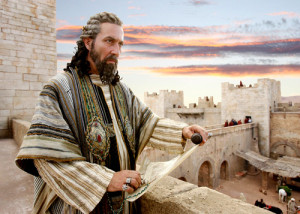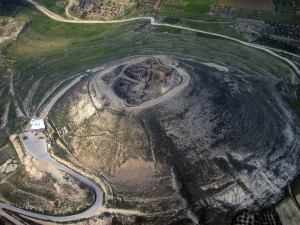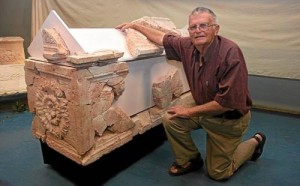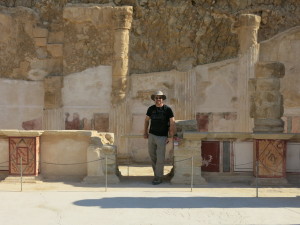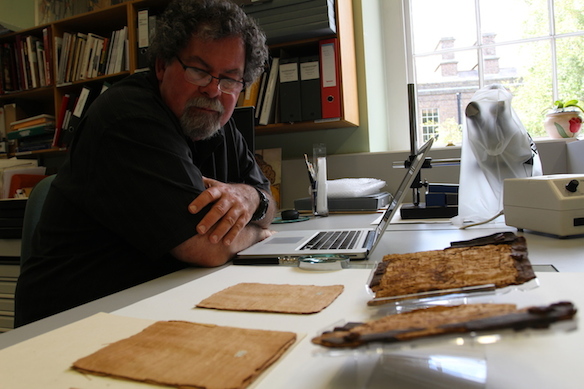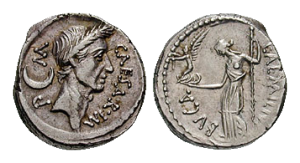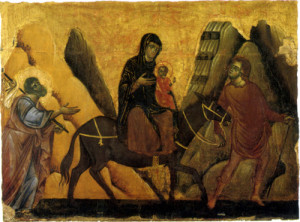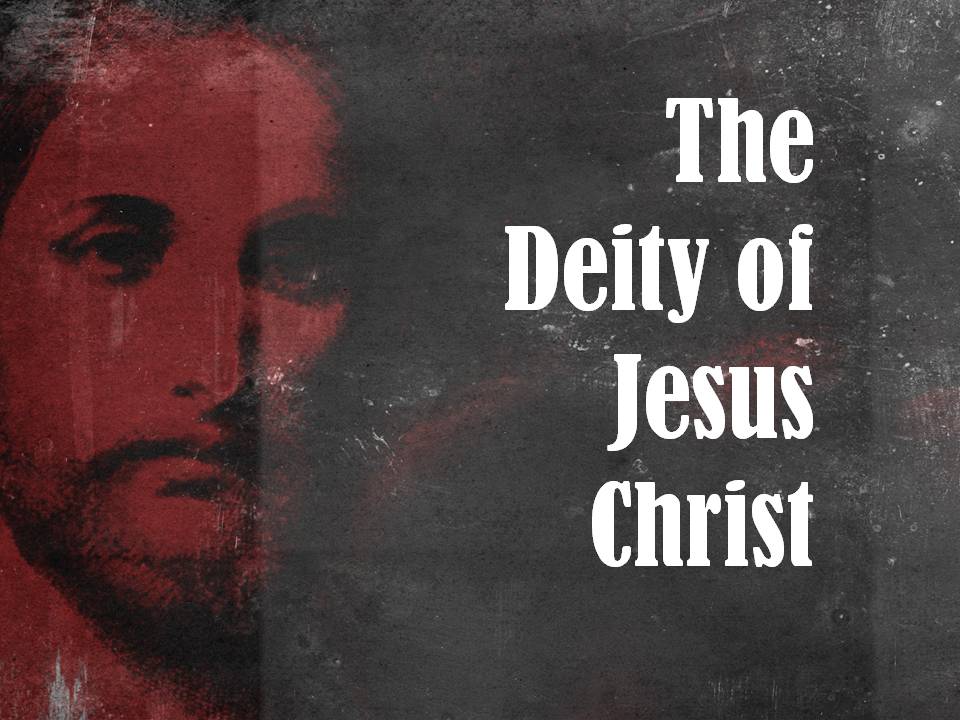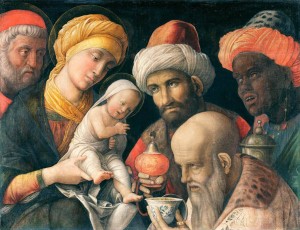The Legacy of Herod & the Impact of Jesus in History
Part 1
King Herod
Herod’s Authority & Lineage as Israel’s King
When Jesus was born two-thousand years ago Israel was a nation occupied by Imperial Rome. Although Rome ultimately controlled the eastern Mediterranean at that time, Israel did have a king – and he was even called, King of the Jews. That man was Herod I, (also known as Herod the Great). Herod figures very largely in the history leading up to the time of Jesus and his birth. In fact, Judaism as it was practiced in Jesus’ day cannot be fully and truly understood apart from Herod’s influence.
Archaeology and history have given us a pretty clear picture of this infamous king – consistent with how he is presented on the pages of the New Testament.
Herod was given the title “King of Judea” by the Roman senate in 40 B.C. on the advice of Mark Antony. Antony considered Herod the most capable man to pry Judea from the hands of the Hasmonean prince, Antigonus as well a nation called the Parthians.[1] These two groups stood in the way of complete Roman control in the region, as well as Herod’s personal political ambitions.
With the help of Rome, Herod did finally succeed in establishing his own power. According to Israeli archaeologist, Ehud Netzer, “Antigonus was captured and executed by the Romans. Herod’s kingship was [then] soon [re]affirmed, both by Anthony and by Octavian, at their meeting in Tarentum, in southern Italy.”[2] Herod ruled Judea for around 33 years.
According to L.I. Levine, “Herod was born in the late 70s B.C. into an aristocratic Idumean family that had converted to Judaism a half a century earlier, in the reign of John Hyrcanus I.”[3]
Idumea and the Idumeans have deep historical connections to the ancient Edomites. Genesis 25:25 presents Esau (who sold his birthright in Gen. 25:29-34) as the founder of Edom and the Edomites. Edom stretched from the southern portion of the Judean hill country to the northern part of the Negeb (Negev). “The population of Idumea consisted of Edomites/Arabs, Jews, Sidonians, Nabateans, and others. …Idumea, the homeland of Herod the Great, formed a vital starting point for and buttress of his power.”[4]
Drawing on Josephus as a primary source, Netzer tells us that, “Herod’s father [was], the scion of a wealthy and prominent Idumean family”… and that, “…Little is known about his mother Cyprus, other than the information provided by Josephus that she came from a distinguished Arabian (apparently Nabatean) family. Neither is the time of Herod’s birth known with certainty, since Josehphus’ data pertaining to Herod’s age contradict one another. Modern scholarship is inclined to regard 73 B.C. as the year of his birth.”[5]
Christians know Herod primarily through the Christmas story as recorded in Matthew 2. In Matthew’s account, Herod learns of the birth of Jesus through the wise men (magi) [likely from Persia]. The magi witnessed some astronomical event in the east and somehow connected it to the birth of Israel’s promised Messiah/King (Matt. 2:1-4).
It is a known fact that Herod was a tyrannical, murderous monarch, willing to kill even his own family members if he thought that they threatened his reign or rule. Bruce Scott writes:
Herod had no qualms about killing. He killed 2,000 survivors of five cities that had rebelled against him. He had his brother in law drowned. He executed his uncle, his wife’s grandfather, his wife, his mother in law, and three of his sons. He murdered faithful followers, servants, friends, soldiers, pious men, relatives – often on flimsy evidence of rumors or coerced confessions.
In the last days of his life, Herod arranger for all of the prominent Jewish leaders of the country to be rounded up, placed in a hippodrome and executed upon the word that he had died. He wanted to ensure that there would be mourning throughout the land after he died. Fortunately the orders were never carried out.
One of Herod’s most barbaric acts is recorded in the Gospel of Matthew 2:16. Shortly after Jesus’ birth, Herod had all males two years old and under in and around Bethlehem slaughtered. He was endeavoring to exterminate the promised Messiah.[6]
Some skeptics have pointed out that since Josephus didn’t mention the massacre of the innocents of Bethelehem by Herod, it likely didn’t happen. But, this is an argument from silence. There are several plausible reasons why it might not have been mentioned. Historian Paul Maier points out two possibilities for the omission:
(1) Josephus may have heard about it and not used this fact. Bethlehem and the region is a little village of 1,500 or so at the time, and you wouldn’t have more than about 24 babies two years old and under, boys would have numbered only about 12–15. And the infant mortality in the ancient world was so huge anyway. And I think if Josephus is choosing between the two stories about how Herod right before his death, I think I would take the one where he is going to slaughter hundreds of Jewish leaders.
(2) Josephus may not have even heard about it. Again, simply because again little Bethlehem doesn’t amount to much of a story, but he may have never heard it in the first place.[7]
Maier then concludes that “history does not militate against Matthew’s version by any means.”[8]
Herod’s Death
Josephus records (Antiquities of the Jews, 17.199) that Herod died in 4 B.C., and he also notes that Herod was buried in Herodium, one of the several desert fortresses that he had built in fear of a Jewish insurrection against his rule.
When he was alive Herod had no shortage of political, religious, personal, and even familial enemies. Even Herod himself knew that he was despised by much of the populace of Judea and Israel.
It is no surprise then, that Herod had devised a plan to ensure that there would be mourning at his funeral by having prominent Jewish rulers and leaders rounded up and killed in the hippodrome in Jericho (as noted above).
Matthew’s account simply informs his readers that once Herod had died, Mary & Joseph were safe to return to the land of Israel from Egypt.
But when Herod died, behold an angel of the Lord appeared in a dream to Joseph in Egypt, saying, Rise, take the child and his mother and go to the land of Israel, for those who sought the child’s life are dead (Matt. 2:19-20).
Herodium: Herod’s Tomb
In a touch of irony, Herod’s final resting place is located just southeast of Bethlehem (where Jesus was born) on the edge of the Judean desert. The place where he was buried is called Herodium – named in honor of himself.
Herodium was a place that held great significance in Herod’s personal history and rise to power. He built the citadel on a natural promontory and modified it as an enormous man-made hill-fortress. As recently as a few months ago, archaeologists have excavated a large monumental entryway in which Herod and his royal entourage would enter the palace complex. In 4 B.C. when he died, his body surely traveled through that same passage, as he was buried in the site in a large red-colored, limestone sarcophagus.
In 2007, professor Ehud Netzer, mentioned above, and his team, reported that they had discovered the remaining fragments of Herod’s royal sarcophagus which had been smashed to pieces, presumably by one of Herod’s many enemies.
Herod left behind a legacy of intrigue, turmoil and bloodshed. His victims included the murdered male children of Bethlehem, as well as many other political enemies, a wife, a son and many, many others. Perhaps what he is remembered for today are his monumental buildings and the remains of grand architectural structures such as Masada, Herodium, the amazing port of Caesarea by the Sea, as well as many others.
Herod’s most significant legacy to the Jews of the first century was the enlargement of the temple platform as well as the temple itself and precincts, which figure prominently in the background of the Gospels. It was that same building that Jesus predicted would be destroyed and not one stone remain in Matthew 24:2. Jesus said, Assuredly I say to you, not one stone shall be left here upon another, that shall not be thrown down.
In A.D. 70 those words were fulfilled when the Roman legions sacked Jerusalem and destroyed the Jewish Temple.[9] Some of the remains of this destruction have been uncovered along the Western Wall in Jerusalem which are visible to this very day!
The fallen stones of the once grand and glorious temple platform in Jerusalem are a fitting epitaph of Herod’s brutal and bloody ambitions. They are a vivid reminder of the futility and pride of man’s ambitions apart from God. In thinking of Herod’s legacy one is reminded of Percy Bysshe Shelly’s poem from 1818 titled “Ozymandias.”
I met a traveller from an antique land
Who said: “Two vast and trunkless legs of stone
Stand in the desert. Near them, on the sand,
Half sunk, a shattered visage lies, whose frown,
And wrinkled lip, and sneer of cold command,
Tell that its sculptor well those passions read
Which yet survive, stamped on these lifeless things,
The hand that mocked them and the heart that fed:
And on the pedestal these words appear:
‘My name is Ozymandias, king of kings:
Look on my works, ye Mighty, and despair!’
Nothing beside remains. Round the decay
Of that colossal wreck, boundless and bare
The lone and level sands stretch far away.'”
Archaeology as well as history have been invaluable aids in helping to clarify, illuminate and affirm the existence one of the most notorious characters in the New Testament. In the next article, we’ll use the same tools and take a look at the lineage and legacy of Jesus, a builder of another sort, as a contrast to the man who was called King of the Jews, when Jesus was born.
[1] Josephus, Antiquities of the Jews, 14.382-387
[2] Ehud Netzer, The Architecture of Herod the Great Builder (Grand Rapids: Baker Academic, 2006), p.8.
[3] “Herod the Great,” in David Noel Freedan, Editor, The Anchor Bible Dictionary, Volume 3 (New York, London: Doubleday, 1992), p.161.
[4] Ulrich Hubner, “Idumea,” ABD, Vol. 3, p.382.
[5] Netzer, pp. 3-4.
[6] Bruce Scott, Israel My Glory, Nov/Dec, 2006, p. 20.
[7] http://tonyreinke.com/2014/12/14/the-christmas-massacre-of-the-innocents-history-or-myth/ (accessed, Dec. 24, 2014)
[8] Ibid.
[9] recorded by Flavius Josephus in Jewish Wars, Book VI


